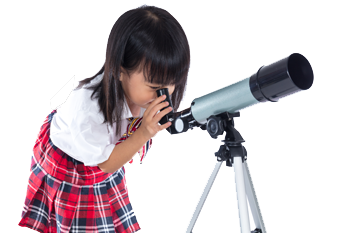
For young learners, science is just an extension of their everyday world. We don’t have to teach young children how to wonder, discover, and explore through play because they do it naturally.
Science has always been fun for children… if it’s presented in the right way.
When people say they don’t like science, it’s most likely because of a bad experience they had as a child. It was the EXPERIENCE that shaped their negative opinion. That’s why it’s so important to focus on working with early childhood educators to learn how to create amazing experiences that encourage discovery through play, asking questions, exploration and using creativity to solve simple problems.
Research shows that most children have formed an opinion (either positive or negative) about science by the time they reach the age of 7. That puts a tremendous about of responsibility on early childhood professionals. Teaching science is not an option for the early childhood educator… it’s a MUST! Hence as educators we have the opportunity to create amazing experiences that will have a lasting impact on our students throughout their entire school experience.
We at Crossroads Samita– will be conducting Science workshops where they will learn and experience a lot of concepts – which are academic related and also some which they see, use and experience in their day to day life. The learning will take place by hands on model making which are functional.This will enhance their structured thinking and problem solving skills.
Some of the experiments are:


Math lab is a place where children can experiment and explore patterns and ideas. We at Crossroads Samita believe that Maths should be hands-on and the basic concepts should be clear to do the complex ones. Hence we will be teaching all the Math concepts with Math manipulatives or teaching aids. The materials are meant to be used both by the students on their own and with their teacher to explore the world of mathematics, to discover, to learn and to develop an interest in mathematics. The activities create interest among students or in anybody who wants to explore, and test some of their ideas, beliefs about mathematics.
Children are active learners who master concepts by progressing through three levels of knowledge - Concrete, Pictorial , Abstract.
The teacher works with the learning of a child who facilitates the process by engaging the child in a process of observation, exploration, experience, questioning and finally deriving the understanding the concept. In a classroom environment children learn best through active participation and peer learning.
As a math center we encourage children to construct the knowledge, discuss, share ideas and deduce actively with each other and the facilitator.
Some of the uses of attending a Math Lab are:
Note : Math Lab is not a Tutorial – rather it’s a place where the Math Concepts right from Number systems are taught in a methodical way with teaching aids so that the child understands Math better and starts loving the subject.
Age Group : Grade 1 to Grade 7
“We remember 10% of what we hear, 30% of what we see, and 90% of what we do” - Jean Piaget